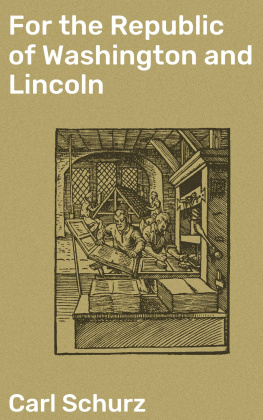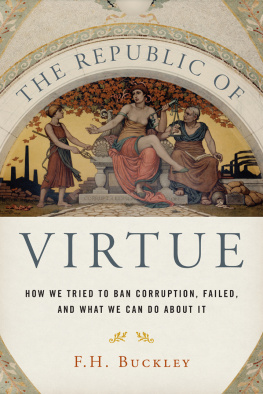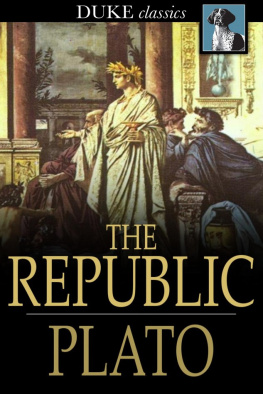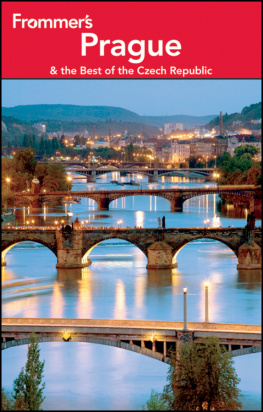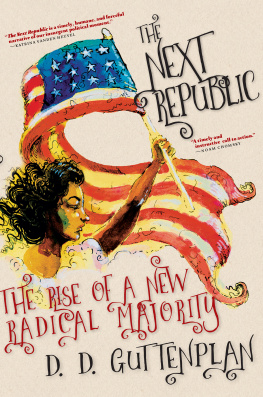the next
republic
the rise of a
new radical
majority
d. d. guttenplan
seven stories press
new york * london * oakland
Copyright 2018 by D. D. Guttenplan
A SEVEN STORIES PRESS FIRST EDITION
All rights reserved. No part of this book may be reproduced, stored in a retrieval system, or transmitted in any form or by any means, including mechanical, electronic, photocopying, recording, or otherwise, without the prior written permission of the publisher.
Seven Stories Press
140 Watts Street
New York, NY 10013
sevenstories.com
College professors and high school and middle school teachers may order free examination copies of Seven Stories Press titles. To order, visit www.sevenstories.com or send a fax on school letterhead to (212) 226-1411.
Library of Congress Cataloging in Publication Data has been applied for.
ISBN 978-1-60980-856-3 (hardcover)
ISBN 978-1-60980-857-0 (ebook)
Printed in the USA.
9 8 7 6 5 4 3 2 1
IN MEMORY OF MY PARENTS ,
Jacqueline and Mitchell Guttenplan, and in the hope that their grandchildrens generation might find something useful in these pages
CONTENTS
INTRODUCTION
In Search of the Lost Republic
America our nation has been beaten by strangers who have turned our language inside out who have taken the clean words our fathers spoke and made them slimy and foul...
America our nation has been beaten by strangers who have bought the laws and fenced off the meadows and cut down the woods for pulp and turned our pleasant cities into slums and sweated the wealth out of our people.
John Dos Passos, The Big Money
As he was leaving Independence Hall one morning in 1789, Benjamin Franklin was accosted by a Philadelphia woman wanting to know what kind of government he and his fellow delegates had devised. The deliberations of the Constitutional Convention had been held in secret, and all kinds of wild rumors were beginning to circulate. Well, Doctor, what have we got, Elizabeth Powel is said to have demanded, a republic or a monarchy? Franklins reply was brisk: A republic, Madamif you can keep it. From its earliest days, the survival of our republic has always been in doubt.
Can we keep it? For many of us that uncertainty became painfully salient on the morning of November 9, 2016. Id spent the previous fifteen months covering the election for the Nation, beginning with the Republican National Committee summer meeting in Cleveland in August 2015, where Sean Spicer boasted to me about how much the party had spent recruiting and training volunteersand where, after the first Republican debate, Id written that Donald Trumps unpredictabilityhis manifest inability to respect the norms of party, civility, or any institution or structure not bearing the Trump name, preferably in gilded lettersmakes him the campaign equivalent of crack cocaine. Though I didnt think any of the other occupants of the Republican clown car could beat Trump, I assumed the RNC would find some other way to stop him.
Over the months that followed I attended Trump rallies in half a dozen states, from Florida to New Hampshirewhere I spent the last night of the campaign at a Trump rally in Manchesteryet I was as surprised as anyone else on election night. How could a country that twice sent Barack Obama to the White House do such a thing?
There are plenty of other books that try to answer that question. This one is doing something else. Because while Id been watching Donald Trump out of the corner of my eye, fascinated by the reinvention of a man whose first brush with bankruptcy Id covered as a writer at the Village Voice and New York Newsday in the 1980s, my main focus was elsewhere. Assuming that the campaign would be boring, Id told my editors I wanted to concentrate not on the candidates, but on the voters, volunteers, activists, and movements that make up the political ground on which elections are fought. I was wrong about the campaign, which turned out to be anything but boring. But I was right in thinking that there was a deeper story to be found far from the lights and the cameras.
Our politics was broken. Walt Whitman had the good fortune to hear America singing. I heard a country screamingat itself, at shadows, at enemies domestic and foreign. Lock Her Up! Build the Wall! But I also heard something else, a quieter sound underneath all the shouting, a collective gasp of recognition and amazement. Id heard it most clearly in a high school gym back in February 2016on the night Bernie Sanders won the New Hampshire primary. Sanders himself was elated, reminding his supporters that when hed begun campaigning we had no campaign organization and we had no money. And we were taking on the most powerful political organization in the United States of America.
Only it wasnt Sanders I was listening to. It was the audiencea mix of old radicals and young activists, tie-dyed grandmothers from California and the Carolinas celebrating with thick-waisted older men in union windbreakers and college students in blue Feel the Bern T-shirts. Could Bernie go all the way? That magical night, with Nevada and Michigan still ahead of us, anything seemed possible. But what I remember even more vividly than that moment of wild hope was the sensation of looking across the packed gym and being astonished at how many of us there wereand realizing that everyone else was just as surprised. (Though it being New Hampshire, and a Sanders rally, the crowd was overwhelmingly white.)
For decades the media had been relentlessly reminding us just how far outside the mainstream we were. In a country where Ronald Reagan and Lee Atwater made liberal a badge of dishonor, a label to be shunned, where did that leave those of us further left? Since the fall of the Berlin Wall nobody bothered calling us communists anymore, but to call yourself a socialist, as Sanders had done, was an invitation to derision. Wed watched in dismay as the bankers deregulated by Bill Clinton crashed the economyonly to be bailed out by Barack Obama, while millions of ordinary Americans lost their homes and their savings. Wed seen George W. Bushs National Security Agency spy on millions of Americansand Barack Obamas Justice Department try to lock up the whistleblowers. Wed witnessed the War on Terror give way to the war against Iraq, and heard the cries to bomb Damascus and Tehran. So when Bernie stood up and said Enough is enough, we were ready to stand with him.
But we werent prepared for what happened next. Grown used to our own marginality, we werent prepared to discover that there were literally millions of us, in every state and every region of the country. It must be said that Bernie wasnt prepared either. A campaign that began somewhere between a quixotic gesture and a protest movement came close enough to winning the nomination to scare the hell out of the Democratic Party establishmentwhich hadnt exactly kept its thumbs off the scale during the primaries. Socialism is no longer toxicindeed, polls show that, among younger Americans, most think it sounds like a pretty good idea.
And yet here we are, with Donald Trump in the White House, Republicans in control of both houses of Congress, and Neil Gorsuch on the Supreme Court. Beyond the immediate damage to the economy, Trumps tax cut gives Republicans a rationale for shrinking an already overburdened state even furtherthe moment the Democrats return to power. The Italian philosopher Antonio Gramsci warned that while the old order is dying and the new cannot be born... a great variety of morbid symptoms appear. The headlinesand Trumps Twitter accountprovide new examples on a daily basis. Yet there are also many signs of rebirth. And not a moment too soon.

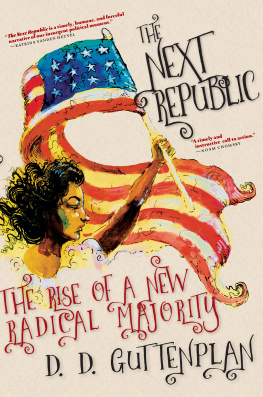

![Averroes on Platos Republic [trans. Ralph Lerner] (Cornell - Averroes on Plato’s Republic](/uploads/posts/book/324094/thumbs/averroes-on-plato-s-republic-trans-ralph.jpg)

